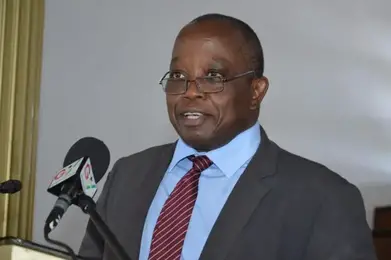A former Auditor-General, Daniel Yaw Domelevo, has bought into the Speaker’s description of the Act that established the Office of the Special Prosecutor as an act in futility.
He says certain provisions in the Act cripple the institution, making the performance of the expected role of the Special Prosecutor difficult.
According to him, despite feeling disturbed over the Speaker’s assertion that the creation of the office was an act in futility, there are portions in the Act which make him question the role granted the OSP.
Following the OSP’s recent lamentations that the Judiciary has ganged up to frustrate its duties by trashing cases of corruption from his outfit that go to court, Speaker of Parliament, Alban Sumana Kingsford Bagbin, said in the House that he anticipated the futility of the office, but was not heeded to because he was a lone voice.
“As for the law you passed on the establishment of the Office of the Special Prosecutor, I did tell you that it was an act in futility, you were not going to achieve anything but you went ahead and passed it,” Speaker Bagbin had intimated.
Meanwhile, Mr. Domelevo has said that as disturbing as the comments may seem, one is not far from the truth to suggest the creation of the office will not yield any results.
“When I heard what the Speaker had to say about the OSP, I was disturbed because I asked, so if it is an exercise in futility, which means that it is useless, then where are we headed?
He added, “And after that, I started a bit of research, so I read the law, and what I found under Section 4, sub-section (II), to me is very disturbing. It reads: subject to Clause 4 of Article 88 of the Constitution, the Office shall for the purpose of this Act, be authorised by the Attorney-General to initiate and conduct the prosecution of corruption and corruption-related cases, which means that the Office is not as independent as we were made to believe, so the mandate still rests with the Attorney- General,” he said on Accra-based JoyNews.
He noted the lack of distinction between the OSP and other existing anti-corruption agencies, asking “so, the question which came to my mind is, how different is this office from EOCO and maybe CHRAJ and other institutions? So it’s really sad.”
He, however, indicated that despite the Office’s inability to secure prosecutions as expected by Ghanaians, the role it has played so far is enough to deter corruption to an extent.
“But let me also say that the effect of what the OSP and for that matter, any of the anti-corruption offices are doing may not result in prosecution and conviction as expected by Ghanaians. But the mere investigation itself even brings about some deterrence. Imagine seizing your assets and going to court to go and confirm it, so that they can do their investigation, and this is in the public domain; that alone brings some deterrence, but I don’t think it is good enough for us,” he stated.
Regarding the office being frustrated by the courts, the anti-corruption crusader said “I don’t think so. Because, if he is going to implement the law, then he must also make sure he operates within the law. You cannot go outside of the law and say that you’re using the same law. I heard of how he went to court on Cecilia Dapaah’s case, and the court said you didn’t come on time. That one, I can’t fault the court for it.”
READ ALSO: ‘Some of your utterances are needless, be cautious’ – Kissi Agyebeng told













